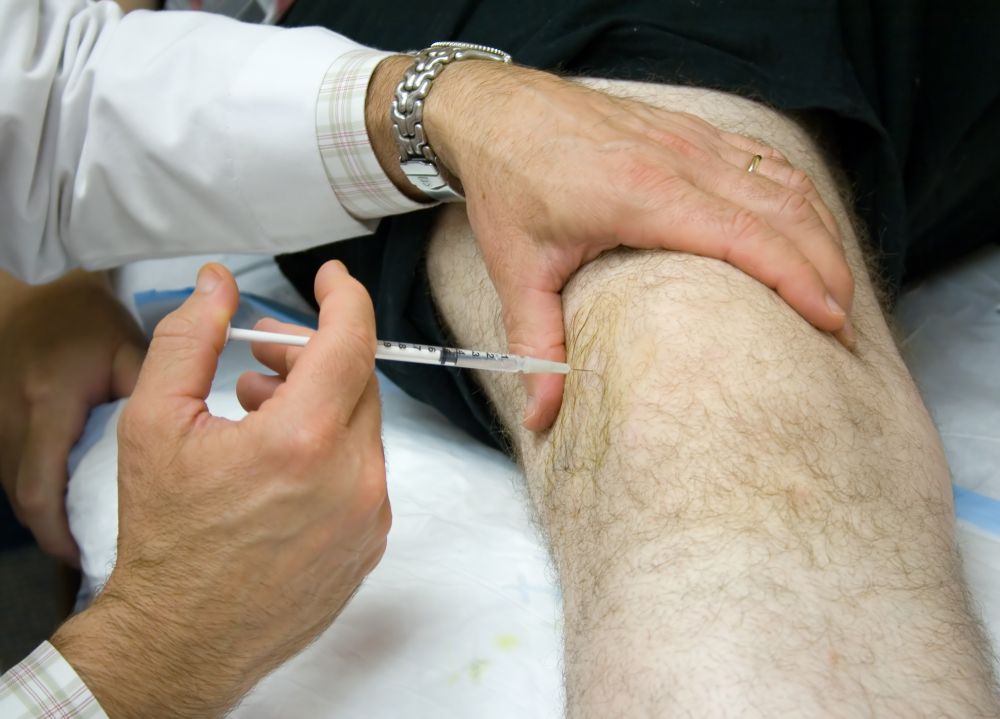Symptomatic knee osteoarthritis is a common form of arthritis characterized by inflammation of the knee. In the United States, knee osteoarthritis (OA) is a leading cause of medical costs and disability. A typical treatment prescribed for this condition is steroid knee injections. But do these injections really work? Or do they hurt the patient more than they help?
What Causes Inflammation
Knee pain can be caused by a variety of issues, including ankle injuries. The source of knee OA, though, is cartilage loss. Cartilage is an elastic yet sturdy material that caps the ends of bones. It cushions the space between them and their connecting joints. When you move any part of your skeletal structure, cartilage ensures you do so fluidly and comfortably. Sometimes, due to common and unavoidable wear and tear, cartilage begins to break down. When this happens, your bones and joints lose their cushion and start to rub together harshly. This unprotected rubbing results in stiffness and pain. When continued unprotected rubbing occurs, the membrane that surrounds the joints become inflamed. The resulting condition is known as synovitis.
Why Steroid Knee Injections Are Used As Treatment
Often, doctors will inject corticosteroids into the knee. This type of steroid quickly reduces inflammation, bringing patients who suffer from knee osteoarthritis much-needed relief sooner. Corticosteroids bring only temporary relief, however. What’s more, steroid knee injections do more harm than good in the long run.
Why Steroid Knee Injections Shouldn’t Be Used As Treatment
The Journal of the American Medical Association (JAMA), a peer-reviewed medical periodical, recently published a study about steroid knee injections. For this study, medical colleagues guided by Dr. Timothy McAlindon gathered 140 patients suffering from knee OA and synovitis. They injected triamcinolone, a corticosteroid, into each patient’s knee once every 12 weeks for two years. Additionally, they maintained a group of patients who received only a placebo. This placebo group helped them measure the true effects of steroid knee injections.
The results were unsettling, to say the least.
Short-Term Effects Versus Long-Term Effects
The study found that steroid injections to the knee did indeed bring relief to patients, but the effect was short-lived. Long-term, the injections did not soothe the pain and stiffness of knee osteoarthritis. In fact, it made the condition worse.
McAlindon and his team found that these injections, when used over a long period of time, contributed to cartilage breakdown. In the end, steroid injections to the knee caused more suffering and health problems than they solved. For this reason, it is not recommended that patients suffering from knee OA receive these injections long-term.
Luckily for knee pain sufferers, there are a variety of nonsurgical, drug-free treatments available to help treat the condition.
Need A New Knee Treatment? Contact Us!
At Busch Chiropractic Pain Center in Fort Wayne, we understand your need to live life pain-free. We offer a variety of nonsurgical, drug-free treatments that have helped thousands live without the burden of chronic pain. Our treatments target multiple areas, including the knee.
If you’re living with knee pain and are considering treatment with steroid injections, please schedule an appointment and talk to us first to learn how we can help relieve your knee pain without harmful injections that only mask the pain.
Do you have any stories about steroid injections? Tell us in the comments below!





